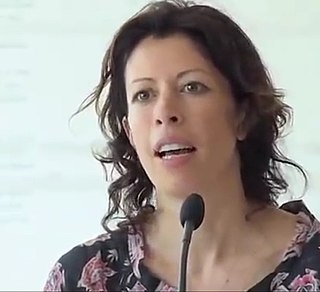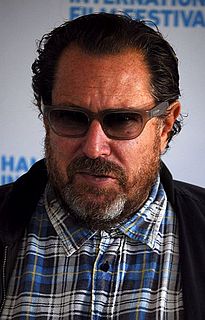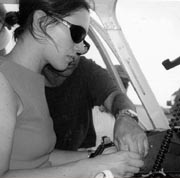A Quote by Robert Genn
I have always found it a testament to the importance of painting that the first thing many people do when their home is on fire is to grab their paintings and then run out.
Related Quotes
I bought a painting in Madrid on my first trip there too and a lot of people say, 'Well it's not the greatest painting' and I say, 'It is to me.' OK, you can look at a beautiful painting and say, 'That's beautiful' but to me, it feels warmer to fill my home with pictures of friends and family and paintings of places I've gone. That's what I want to come home to.
In my paintings, the question on whether figures are similar or not is not of any importance, the slightest change of figure or color can create a new painting and it doesn't really matter if a subject is revisited by an artist repeatedly. With enough time in between paintings, an artist can always bring to it something new.
You're like a witness. You're the one who goes to the museum and looks at the paintings. I mean the paintings are there and you're in the museum too, near and far away at the same time. I'm a painting. Rocamadour is a painting. Etienne is a painting, this room is a painting. You think that you're in the room but you're not. You're looking at the room, you're not in the room.
People see so many things in the paintings. Although I never think of them, it charms me a little bit that people actually project actual scenarios on to the paintings. Hopefully that means that they have a little bit of life to them. Figuring out the rhythm, the structural element has been the key thing in this work, more than the color element. It really was the variety of different widths that lead to a certain movement, a rhythm. Otherwise I'd fall into anything that was too stripy or almost like bar codes, and it thwarted the natural flow of the painting.
I think that people tend to look at the paintings as being resolved or finite. But, to me, a painting can be an index for all of the paintings I've done and all of the paintings I'm going to do. It's like if I'm doing a film of the Olympics, I'm not examining a specific sport; I'm interested in the overall context.
People are still making paintings. People are still enjoying paintings, looking at paintings. Paintings still have something to tell us. There's a way of being in the world that painting brings to us, that painters bring to the task that we absorb and are able to be in dialogue with. That's something that's part of us.
At my first Olympics, I didn't have a contract, and I wasn't making any money. After my first Olympics, I was working at 24 Hour Fitness at the front desk. I would go to practice in the morning, run home, shower, grab some food and then go straight to work. I didn't get off of work until 10 or 11 o'clock at night.
When you're walking home at night, do you even get creeped out and even though it's silly and embarrassing you just want to run home?" It seemed too secret and personal to admit to virtual stranger, but I told her, "Yeah, totally." For a moment, she was quiet. Then she grabbed my hand, whispered, "Run run run run run," and took off, pulling me behind her.






































